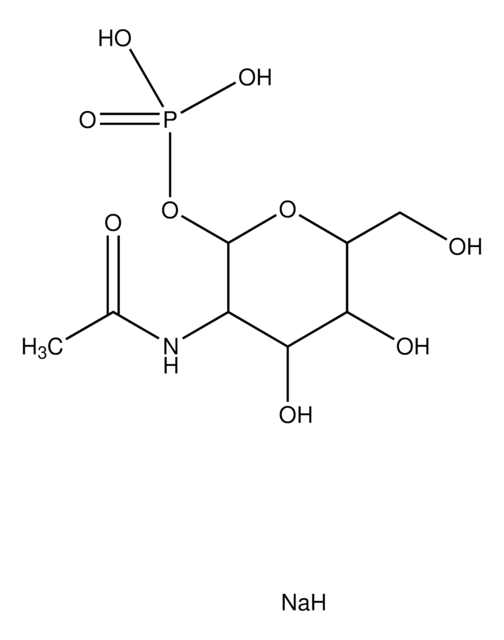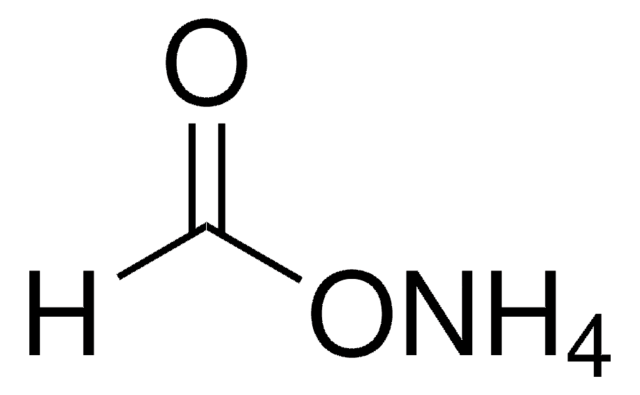A6141
Ammonium bicarbonate
ReagentPlus®, ≥99.0%
Sinónimos:
Ammonium hydrogen carbonate
About This Item
Productos recomendados
vapor density
2.7 (vs air)
Quality Level
vapor pressure
513 hPa ( 50 °C)
67.1 hPa ( 20 °C)
product line
ReagentPlus®
assay
≥99.0%
form
powder or crystals
pH
7-8.5 (25 °C, 79.1 g/L)
SMILES string
N.OC(O)=O
InChI
1S/CH2O3.H3N/c2-1(3)4;/h(H2,2,3,4);1H3
InChI key
ATRRKUHOCOJYRX-UHFFFAOYSA-N
¿Está buscando productos similares? Visita Guía de comparación de productos
General description
Application
- To derivatize histone proteins from human monocyte-derived macrophages (MDM) by propionylation.
- Destaining of silver-stained proteins in polyacrylamide gel bands during the peptide mass profiling using a mass spectrometer.
- Digestion of proteins isolated from Xenopus egg extracts in coomassie blue-stained gel bands during the analysis of microtubule-binding proteins.
Legal Information
signalword
Warning
hcodes
Hazard Classifications
Acute Tox. 4 Oral
Storage Class
13 - Non Combustible Solids
wgk_germany
WGK 1
Certificados de análisis (COA)
Busque Certificados de análisis (COA) introduciendo el número de lote del producto. Los números de lote se encuentran en la etiqueta del producto después de las palabras «Lot» o «Batch»
¿Ya tiene este producto?
Encuentre la documentación para los productos que ha comprado recientemente en la Biblioteca de documentos.
Nuestro equipo de científicos tiene experiencia en todas las áreas de investigación: Ciencias de la vida, Ciencia de los materiales, Síntesis química, Cromatografía, Analítica y muchas otras.
Póngase en contacto con el Servicio técnico







